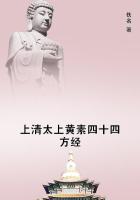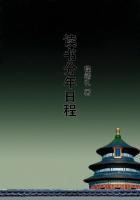Those who have quitted the world, and those who have not yet arrived at it, are as remote from each other as the utmost stretch of mortal imagination can conceive.What possible obligation, then, can exist between them- what rule or principle can be laid down that of two nonentities, the one out of existence and the other not in, and who never can meet in this world, the one should control the other to the end of time?
In England it is said that money cannot be taken out of the pockets of the people without their consent.But who authorised, or who could authorise, the Parliament of 1688 to control and take away the ******* of posterity (who were not in existence to give or to withhold their consent) and limit and confine their right of acting in certain cases for ever?
A greater absurdity cannot present itself to the understanding of man than what Mr.Burke offers to his readers.He tells them, and he tells the world to come, that a certain body of men who existed a hundred years ago made a law, and that there does not exist in the nation, nor ever will, nor ever can, a power to alter it.Under how many subtilties or absurdities has the divine right to govern been imposed on the credulity of mankind?
Mr.Burke has discovered a new one, and he has shortened his journey to Rome by appealing to the power of this infallible Parliament of former days, and he produces what it has done as of divine authority, for that power must certainly be more than human which no human power to the end of time can alter.
But Mr.Burke has done some service- not to his cause, but to his country-by bringing those clauses into public view.They serve to demonstrate how necessary it is at all times to watch against the attempted encroachment of power, and to prevent its running to excess.It is somewhat extraordinary that the offence for which James II.was expelled, that of setting up power by assumption, should be re-acted, under another shape and form, by the Parliament that expelled him.It shows that the Rights of Man were but imperfectly understood at the Revolution, for certain it is that the right which that Parliament set up by assumption (for by the delegation it had not, and could not have it, because none could give it) over the persons and ******* of posterity for ever was of the same tyrannical unfounded kind which James attempted to set up over the Parliament and the nation, and for which he was expelled.The only difference is (for in principle they differ not) that the one was an usurper over living, and the other over the unborn; and as the one has no better authority to stand upon than the other, both of them must be equally null and void, and of no effect.
From what, or from whence, does Mr.Burke prove the right of any human power to bind posterity for ever? He has produced his clauses, but he must produce also his proofs that such a right existed, and show how it existed.
If it ever existed it must now exist, for whatever appertains to the nature of man cannot be annihilated by man.It is the nature of man to die, and he will continue to die as long as he continues to be born.But Mr.Burke has set up a sort of political Adam, in whom all posterity are bound for ever.He must, therefore, prove that his Adam possessed such a power, or such a right.
The weaker any cord is, the less will it bear to be stretched, and the worse is the policy to stretch it, unless it is intended to break it.Had anyone proposed the overthrow of Mr.Burke's positions, he would have proceeded as Mr.Burke has done.He would have magnified the authorities, on purpose to have called the right of them into question; and the instant the question of right was started, the authorities must have been given up.
It requires but a very small glance of thought to perceive that although laws made in one generation often continue in force through succeeding generations, yet they continue to derive their force from the consent of the living.A law not repealed continues in force, not because it cannot be repealed, but because it is not repealed; and the non-repealing passes for consent.
But Mr.Burke's clauses have not even this qualification in their favour.
They become null, by attempting to become immortal.The nature of them precludes consent.They destroy the right which they might have, by grounding it on a right which they cannot have.Immortal power is not a human right, and therefore cannot be a right of Parliament.The Parliament of 1688 might as well have passed an act to have authorised themselves to live for ever, as to make their authority live for ever.All, therefore, that can be said of those clauses is that they are a formality of words, of as much import as if those who used them had addressed a congratulation to themselves, and in the oriental style of antiquity had said: O Parliament, live for ever!
The circumstances of the world are continually changing, and the opinions of men change also; and as government is for the living, and not for the dead, it is the living only that has any right in it.That which may be thought right and found convenient in one age may be thought wrong and found inconvenient in another.In such cases, who is to decide, the living or the dead?
As almost one hundred pages of Mr.Burke's book are employed upon these clauses, it will consequently follow that if the clauses themselves, so far as they set up an assumed usurped dominion over posterity for ever, are unauthoritative, and in their nature null and void; that all his voluminous inferences, and declamation drawn therefrom, or founded thereon, are null and void also; and on this ground I rest the matter.
We now come more particularly to the affairs of France.Mr.Burke's book has the appearance of being written as instruction to the French nation;but if I may permit myself the use of an extravagant metaphor, suited to the extravagance of the case, it is darkness attempting to illuminate light.















